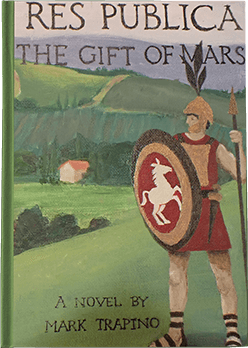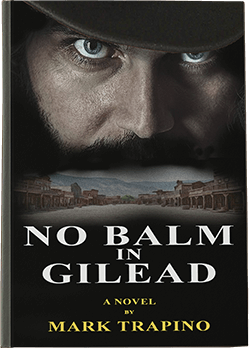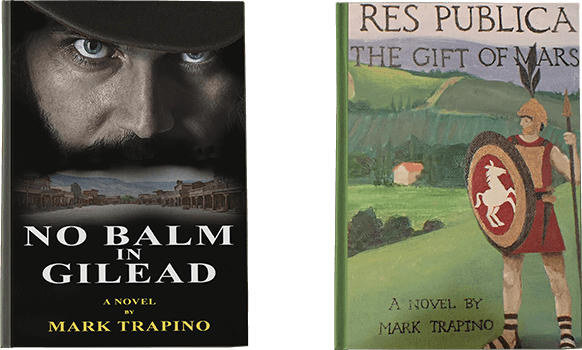You can also purchase No Balm in Gilead direct from the publisher at Archway Publishing in hard cover, paperback, or digital form.

|
When one thinks of ancient Rome, it is only natural to imagine a vast empire encompassing the Mediterranean Sea and extending all the way up the Atlantic coast to England. That, however, was the culmination of a state that began as just another little city founded about 750 BC on the Italian peninsula. It was ruled by kings, starting with the eponymous founder, Romulus, for the next 240 years. Then, in 509 BC the kings were overthrown and a republic was formed. All around this little republic that occupied maybe 250 square miles enemies plotted their downfall. Etruscans, Samnites, Hernici, Aequians, Volscians, among others warred against Rome. Even their kindred Latin cities sought their destruction or containment. To add to their woes, internally they were less a republic than an oligarchy, an aristocracy that fought among themselves and the commoners they ruled over. This was called the “conflict of the orders.” And this is where the novel Res Publica: The Gift of Mars begins. The lives of three generations of the plebeian Tempanius family are woven through the struggles and conflicts against Etruscan, Latin and other enemies of the young republic, and the fight for rights and power between the aristocratic Patricians and the common people of Rome in the first decades of the Roman Republic. Lucius Tempanius, eldest son of Marcus and Drusilla, is a born soldier and loves war and pleasure. He has no interest in farming nor in politics. His sole goal in life is to be the greatest soldier of Rome, and abjures his role as head of the family and leaves the farm to his brother, Titus when their father, Marcus dies. His move into the city to live in a tavern causes a deep rift in the family and brings dishonor to the Tempanius name. Or would, if it weren’t for his exploits on the field of battle, which win him renown in the city. But when his youngest brother is murdered by a patrician and allowed to escape punishment, Lucius finally dedicates himself to a cause. Putting aside family differences Lucius and Titus join together to pursue the cause of vendetta; to avenge their brother, and to break the power of the patrician class. |

|
James Fremont, entrepreneur and founder of a town in central Texas named after himself, is murdered on a business trip to an army post. His partner, Ed Begley escapes the ambush and returns to Fremont and blames the Kiowa Indians. Deputy Sheriff J.C. Guy is sent to investigate the scene and secure the body. He finds Fremont stuck with arrows, but as J.C. looks around, the visible evidence doesn’t add up, and he comes away convinced that Jim Fremont was not murdered by Indians. Then who did it? Thus begins J.C. Guy’s tortuous and deadly search for the perpetrators, during the course of which, as he peels back layers of corruption and unholy alliances that have turned the city into a den of thieves, he is attacked from all sides, including attempts on his life. His reason tells him to let sleeping dogs lie, let the Indians take the blame and stick to his goal of saving enough to buy a small ranch, but his conscience, goaded by his friend and Presbyterian preacher, Jeremiah Mackenzie, tells him dreams of peace and prosperity cannot coexist with injustice. He is hindered not only by competing desires but also by the lack of allies to back his play. Only three men are reliably on his side: Billy Dwyer, a fellow deputy sheriff and former Buffalo Soldier, the Reverend Mackenzie, and Will Taylor, black publisher of the Plains Dealer newspaper. Arrayed against them are political big-wigs, law enforcement officials, a corrupt judiciary, black market business interests, and the gang of outlaws who serve them. To complicate matters, J.C. and Lottie Yee, daughter of the Chinese laundry owner, have developed feelings for one another, and his fear for her safety as he gets closer to the truth causes such anguish that he wants to give up, but when the outlaws murder his friend, he cannot let it go, and he sets everything else aside to avenge him and hold the murderers to account, come what may. |













